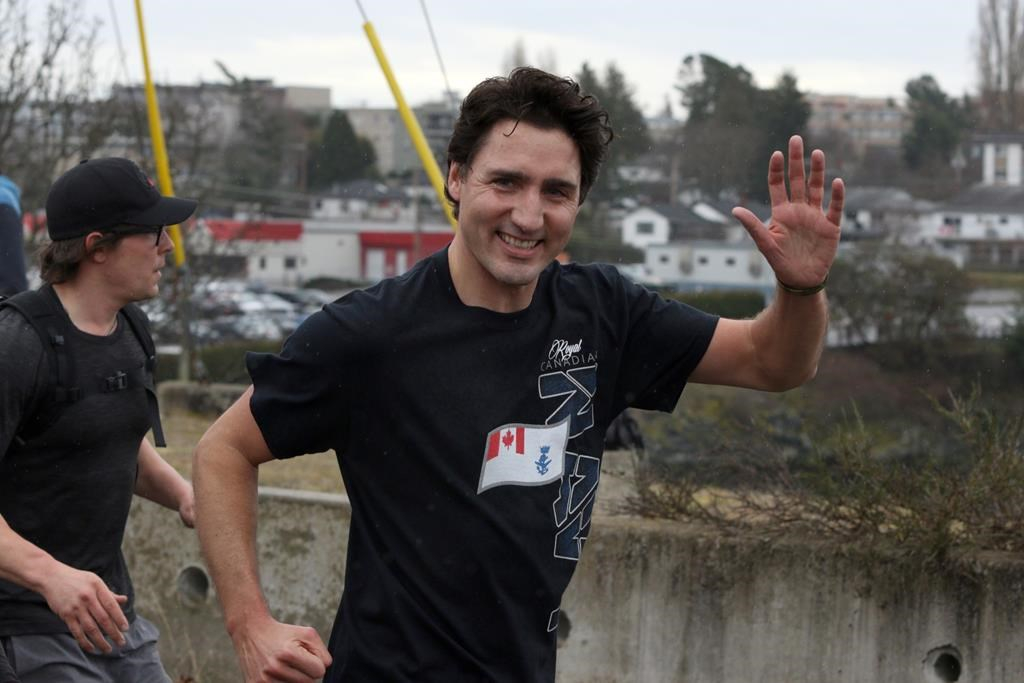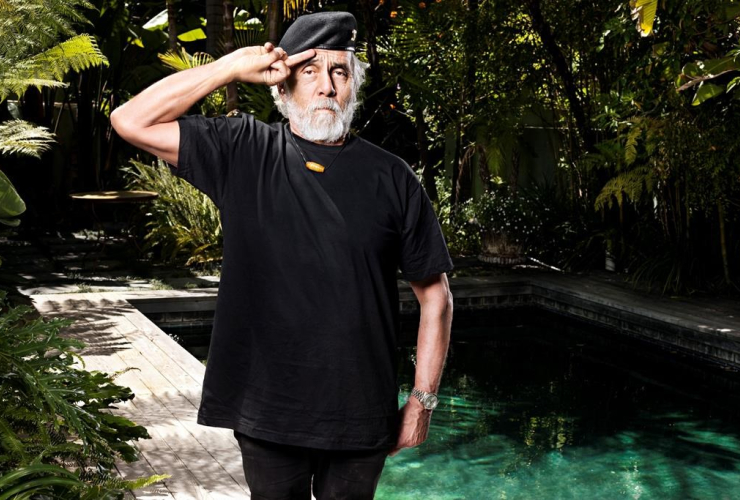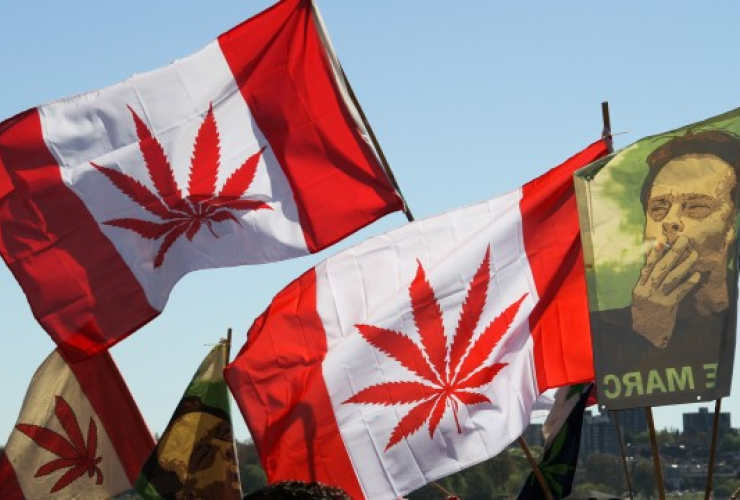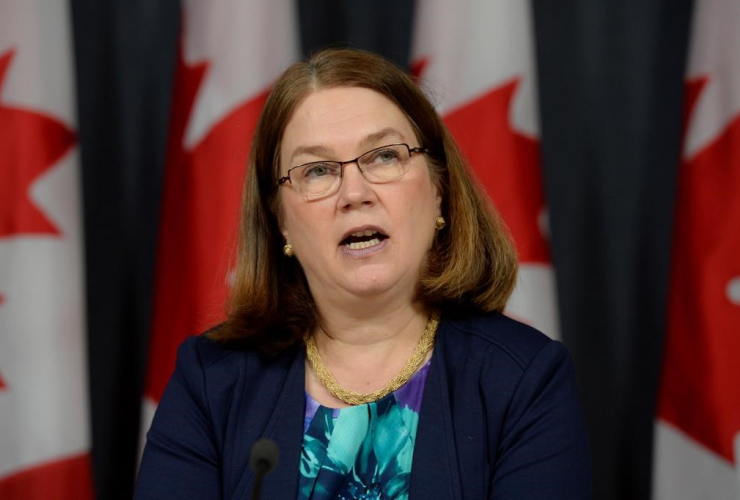Prime Minister Justin Trudeau says regulating the sale of marijuana will protect young people and take money away from criminal gangs, but the government is drawing the line at pot when it comes to legalizing illicit drugs.
The federal government's approach on marijuana has two goals, Trudeau said Thursday during a visit to Canadian Forces Base Esquimalt in the Victoria area.
"The first is to protect our kids. Right now we know that young people have easier access to marijuana than just about any other illicit substance. It's easier to buy a joint for a teenager than it is to buy a bottle of beer. That's not right," he said.
"Secondly, we know that criminal organizations and street gangs are making billions of dollars off of the sale of marijuana. We feel that regulating it, controlling it will bring that revenue out of the pockets of criminals and put it into a system where we can both monitor, tax it and ensure that we are supporting people who are facing challenges related or unrelated to drug use."
But the government doesn't plan to go any further than legalizing marijuana in legislation he hopes will be introduced by this summer.
"We are not planning on including any other illicit substances in the move towards legalizing and controlling and regulating," he said.
Trudeau is scheduled to participate in a roundtable discussion with first responders and health-care workers on Friday in Vancouver on British Columbia's opioid crisis, which killed 922 people last year.
A recent federal announcement giving $10 million to the provincial government to help fight overdose deaths is aimed at improving the response to the crisis, said Trudeau.
Although it is up to the province to decide how that money is spent, he says people in Vancouver's Downtown Eastside told him in December more money was needed to keep safe consumption sites open longer for drug users in the inner-city neighbourhood.
"This is an issue that we are taking very seriously and we will continue to engage in," said Trudeau, who met with Premier Christy Clark on Thursday evening in Vancouver.
Trudeau spent Thursday morning on the naval base, where he went on a five-kilometre run with Defence Minister Harjit Sajjan and military personnel, met with sailors and toured the facility.
Trudeau examined the recently modernized combat systems on board HMCS Ottawa, one of the Pacific fleet's five frigate-class ships. He also visited the crew of HMCS Chicoutimi as the submarine was about to leave the base for a voyage.
Trudeau met privately with Victoria Mayor Lisa Helps at city hall, where protesters gathered outside carrying signs that chided the government for dropping plans to reform the electoral system and its support for the Kinder Morgan pipeline expansion project.
Helps said the meeting was the first time a prime minister had been at city hall since 1965, when Lester Pearson visited. She said she received no firm commitments from Trudeau during the 30-minute meeting. They discussed green technology, the opioid crisis, the city's cruise ship terminal and housing.
"The best outcome is I feel there's the beginning of a relationship," Helps said.
As a semi-retired MD, child
As a semi-retired MD, child of the sixties with much personal experience (listen to "Are You Experienced?" per Jimi Hendrix); the honour of 20 years visiting "behind the mask" of thousands of other humans in outpatient mental health roles as well as seeing outcomes amongst my friends who continued with daily use of pot or hash over decades, I can say that exposure to the potential of an activity/drug ( e.g. screen time or any other daily escape) interferes with processing the events (and challenegs) that come up with daily life and creates a pattern of avoidance and developmental delay. Furthermore many drugs including pot but also 4 or more servings of alcohol, opioids, tranquilizers, all interfere with slow wave and dream sleep where essential functions occur including further unconscious processing of daily events......not a great pattern to be starting earlier and more easily.







Comments